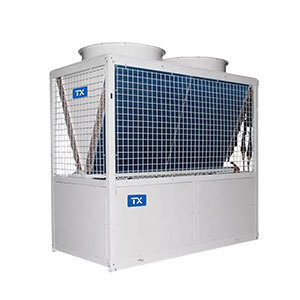Understanding the Benefits and Functionality of Modular Chiller Systems

Modular chiller systems are innovative refrigeration solutions that have revolutionized the way industries manage their cooling needs. These systems are designed to provide efficient temperature control while offering flexibility and scalability. By understanding the key components and benefits of modular chiller systems, professionals in the industrial equipment sector can make informed decisions that enhance operational efficiency.
At the core of a modular chiller system is its ability to operate as a collection of interconnected units, or modules. This design allows for significant customization to suit specific cooling requirements. Unlike traditional chillers, which often operate as a monolithic unit, modular systems can be easily expanded or reconfigured. This is particularly advantageous for industries experiencing fluctuating cooling demands, as additional modules can be added or removed without major disruptions.
One of the primary benefits of modular chiller systems is their energy efficiency. Each module can be independently controlled, allowing for optimized performance based on real-time cooling needs. This means that rather than overworking a single large unit, which can lead to inefficiencies and higher energy consumption, businesses can operate only the necessary modules. This not only reduces energy costs but also minimizes environmental impact, aligning with the growing emphasis on sustainability in industrial operations.
Additionally, the modular design contributes to increased uptime. If one module requires maintenance or repair, the remaining units can continue to operate, ensuring that cooling processes are not halted. This redundancy is a critical feature for industries where constant temperature regulation is essential—such as pharmaceuticals, food processing, and data centers—where even brief interruptions can lead to significant losses.
Modular chiller systems also offer improved installation flexibility. With smaller, modular units, installation can often be completed in tighter spaces compared to traditional systems. This is particularly important for facilities with space constraints or those planning to expand in the future, as modular systems can easily adapt to changing layouts and requirements.
Furthermore, these systems can be integrated with advanced control technologies and IoT solutions, allowing for real-time monitoring and management. This not only enhances operational oversight but also supports predictive maintenance, further bolstering system reliability and performance.
In summary, modular chiller systems present a versatile and efficient solution for industrial cooling needs. Their inherent flexibility, energy efficiency, and ease of integration make them an ideal choice for various applications. As industries continue to evolve, the modular approach to chilling technology will undoubtedly play a crucial role in meeting the demands of modern industrial environments. Understanding these systems is essential for professionals looking to optimize their cooling strategies while maintaining operational resilience.
At the core of a modular chiller system is its ability to operate as a collection of interconnected units, or modules. This design allows for significant customization to suit specific cooling requirements. Unlike traditional chillers, which often operate as a monolithic unit, modular systems can be easily expanded or reconfigured. This is particularly advantageous for industries experiencing fluctuating cooling demands, as additional modules can be added or removed without major disruptions.
One of the primary benefits of modular chiller systems is their energy efficiency. Each module can be independently controlled, allowing for optimized performance based on real-time cooling needs. This means that rather than overworking a single large unit, which can lead to inefficiencies and higher energy consumption, businesses can operate only the necessary modules. This not only reduces energy costs but also minimizes environmental impact, aligning with the growing emphasis on sustainability in industrial operations.
Additionally, the modular design contributes to increased uptime. If one module requires maintenance or repair, the remaining units can continue to operate, ensuring that cooling processes are not halted. This redundancy is a critical feature for industries where constant temperature regulation is essential—such as pharmaceuticals, food processing, and data centers—where even brief interruptions can lead to significant losses.
Modular chiller systems also offer improved installation flexibility. With smaller, modular units, installation can often be completed in tighter spaces compared to traditional systems. This is particularly important for facilities with space constraints or those planning to expand in the future, as modular systems can easily adapt to changing layouts and requirements.
Furthermore, these systems can be integrated with advanced control technologies and IoT solutions, allowing for real-time monitoring and management. This not only enhances operational oversight but also supports predictive maintenance, further bolstering system reliability and performance.
In summary, modular chiller systems present a versatile and efficient solution for industrial cooling needs. Their inherent flexibility, energy efficiency, and ease of integration make them an ideal choice for various applications. As industries continue to evolve, the modular approach to chilling technology will undoubtedly play a crucial role in meeting the demands of modern industrial environments. Understanding these systems is essential for professionals looking to optimize their cooling strategies while maintaining operational resilience.
PREVIOUS:

